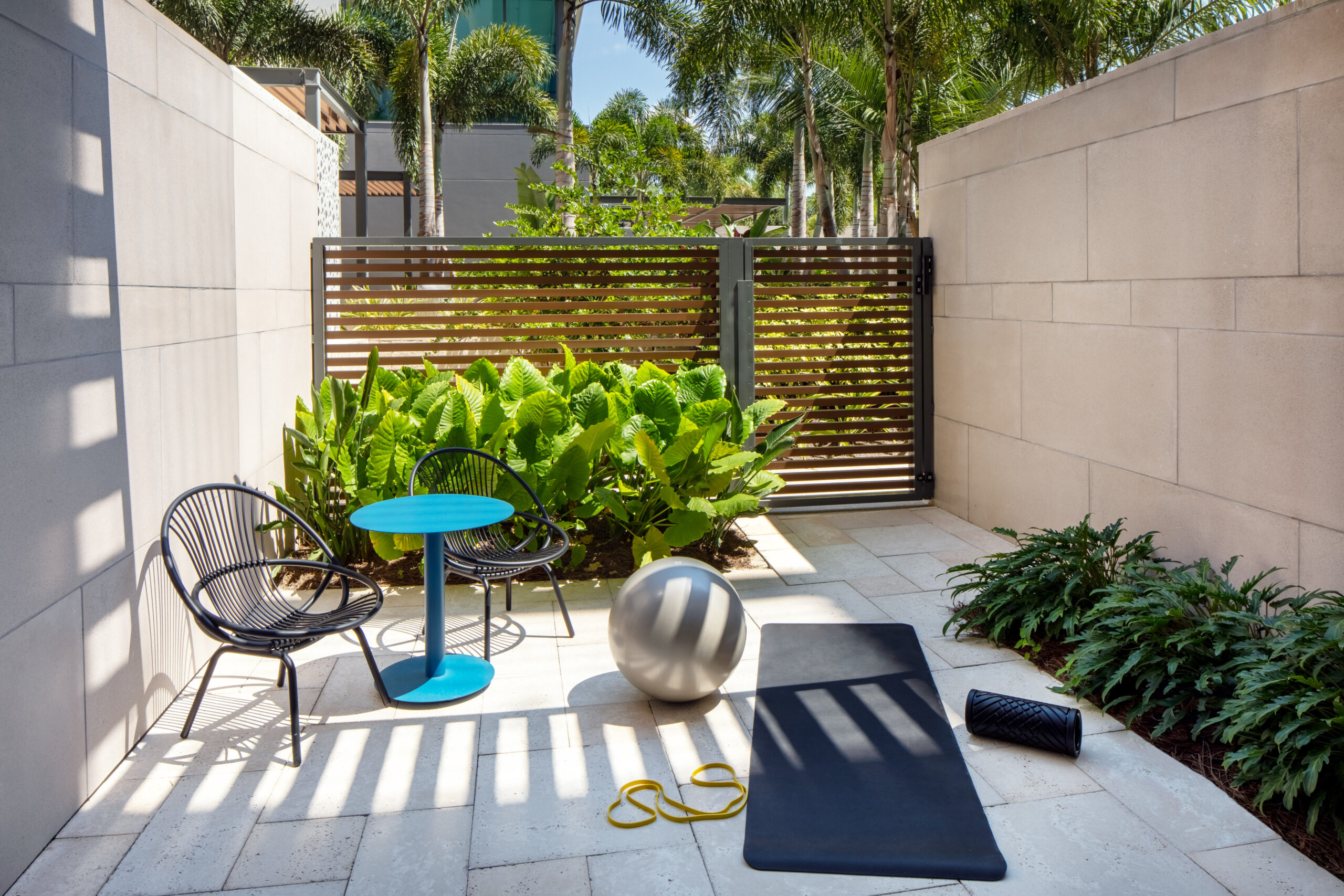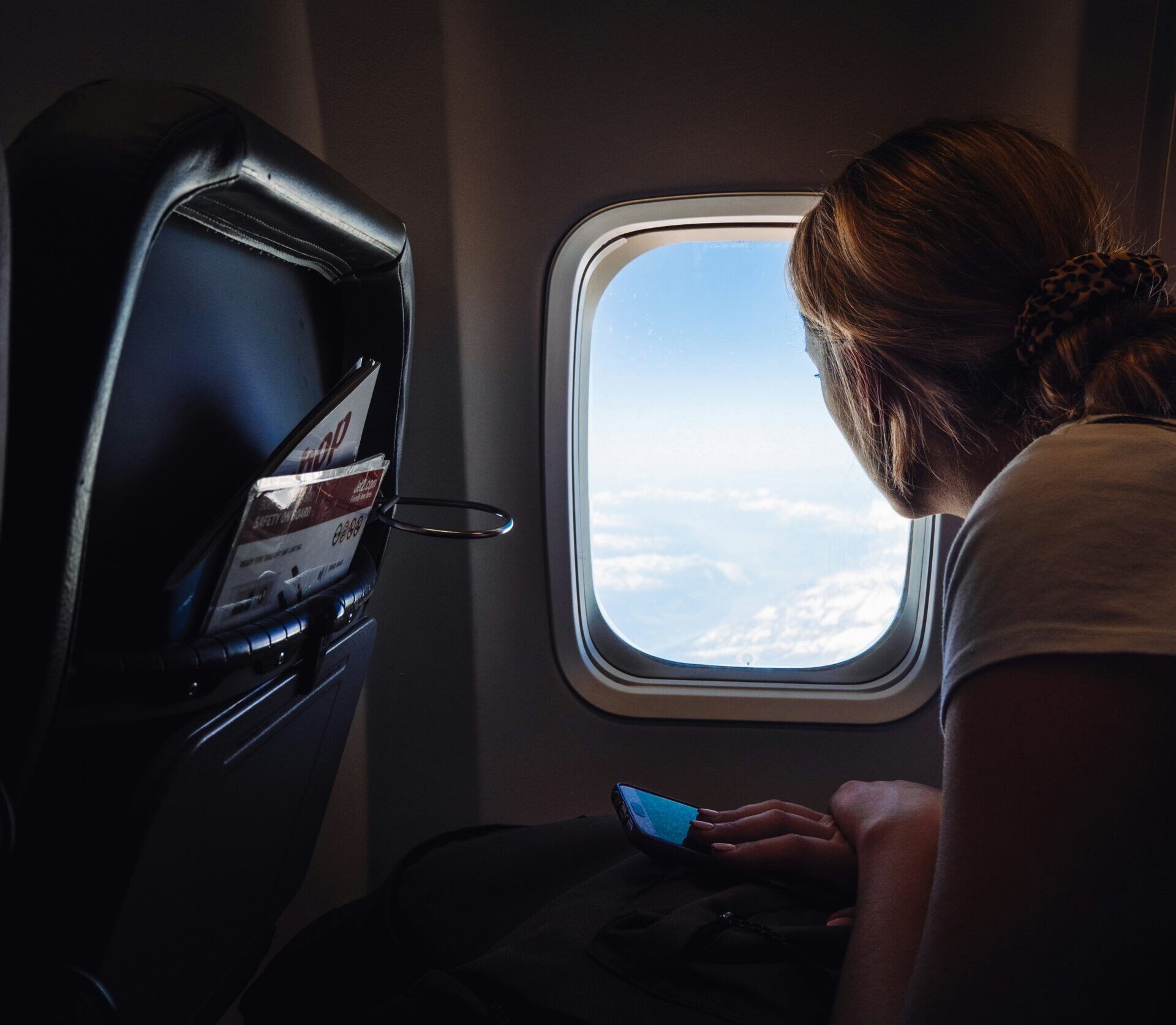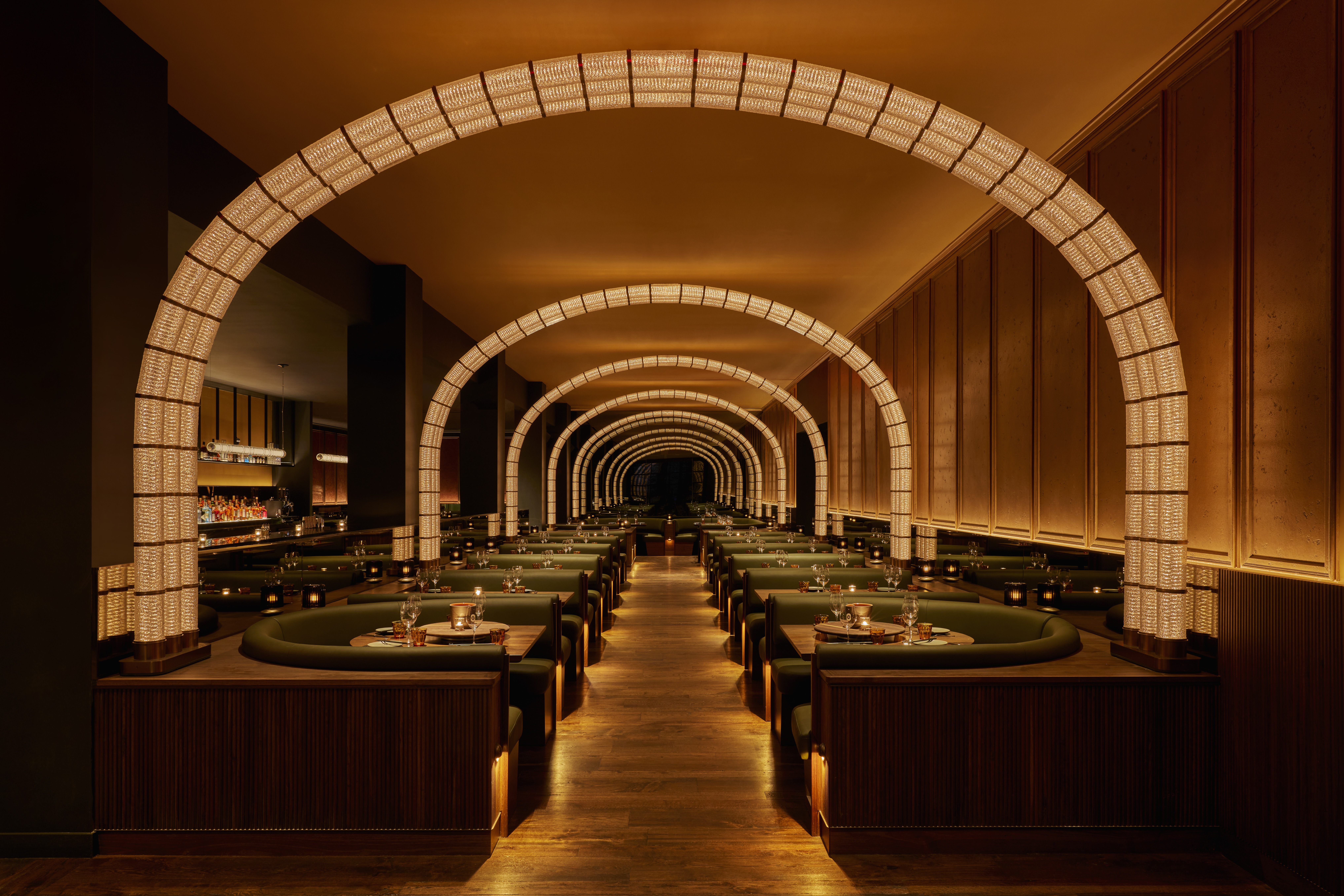Set Up Camp at These 4 Safari Lodges in Botswana
With a new crop of spectacular camps, Botswana offers a lush environment for African safaris
August 16, 2023
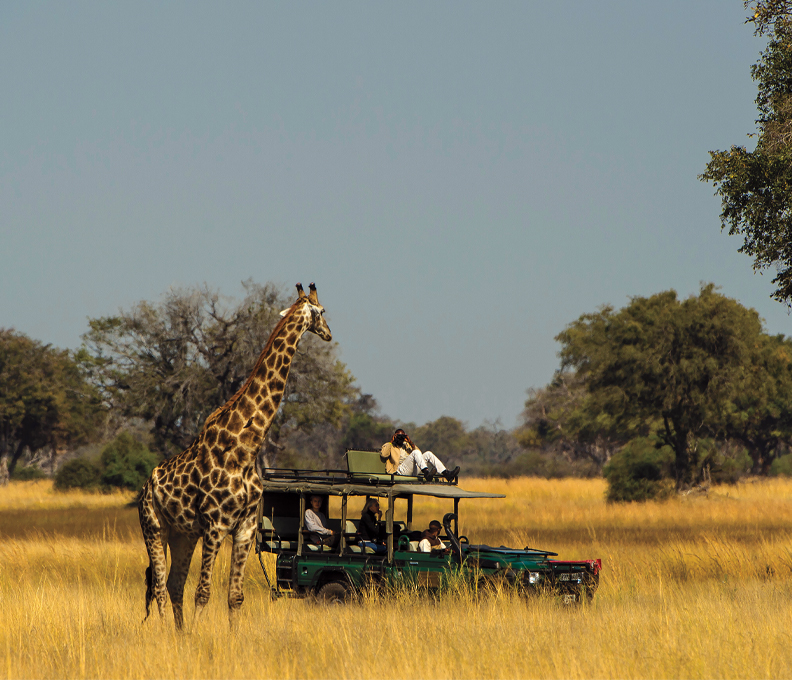
Game drive at Duke’s Camp / Photo: Courtesy of Peter & Beverly Pickford Wildlife Photography
Botswana’s UNESCO-Protected Okavango Delta is emerging as one of the go-to spots for first-time safari-goers, offering an alternative to the usual destinations in South Africa, Kenya and Tanzania. For more than 30 years, Natural Selection has operated camps in some of the delta’s most dazzling and remote corners, including this quartet of new and in-the-works lodges that provide an ecologically diverse adventure through the region’s wildlife-rich swamps, lagoons, channels and mopane forests.
Thamo Telele
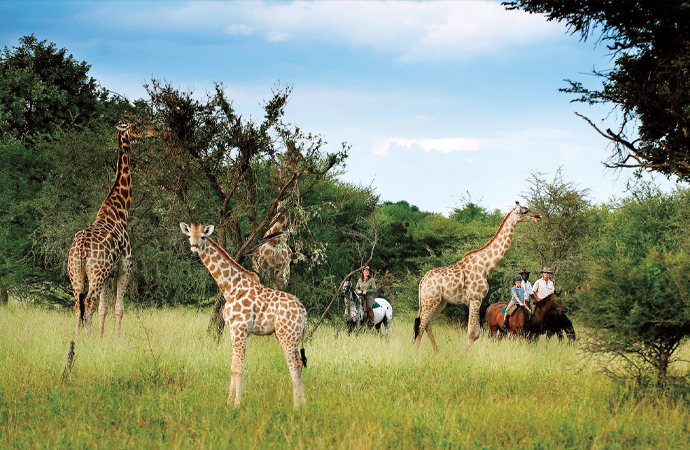
Thamo Telele / Photo: Courtesy of Natural Selection
Most travelers enter the Okavango through the bustling gateway town of Maun, touching down at the international airport just long enough to catch another prop plane out to their safari camp. In an effort to entice visitors to stick around awhile, Natural Selection recently acquired and reinvented a lodge on the outskirts of town, only a 20-minute drive from the airport. Think of it as a suburban safari of sorts, set on a 618-acre private game reserve that’s home to a herd of giraffes. The animals feature heavily in the 11-room hotel’s colorful, folk-art-inspired decor, and an unusually tall calf born here during the refurbishment process lent Thamo Telele its name: It means “long neck” in the local Tswana language. Because the reserve is free of predators, you can explore the landscape on foot, by fat-tire bike or on horseback, allowing you to commune with its zebras and more than 300 species of birds.
Duke’s Camp
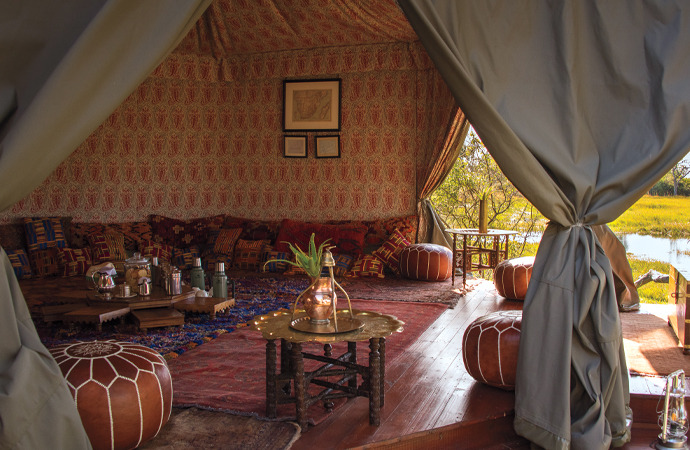
Guest area at Duke’s Camp / Photo: Courtesy of Natural Selection
Named for the 80-year-old custodian of these ancestral lands, this 12-tent camp opened last year on a delta island shaded by towering leadwood and ebony trees that often teem with raucous baboons. Tents feature bold paisley-print interiors, four-poster beds, mahogany sideboards and kilim rugs, making for an exceedingly restful sleep. In fact, the only thing that might wake you from your slumber is the nightly rustling of big game on the other side of that canvas (yes, they are as near as they sound) or the guttural sunrise chorus of hippopotamuses, who seem to be beckoning you to explore their watery world. While the surrounding reserve is filled with terrestrial animals such as lions, Cape buffalo and wild dogs, Duke’s is all about aquatic exploration. From your mokoro (dugout canoe), you’ll see elephants hosing themselves down, crocodiles sunbathing on the shores, fish eagles diving for their next meal, and red lechwe antelopes escaping predators by bounding through the waters like skipping stones. And there’s no better place for a sundowner than the bow of the camp’s double-decker boat—may we suggest a mopane-seed-infused, Botswana-distilled Okavango gin and tonic?
Tuludi
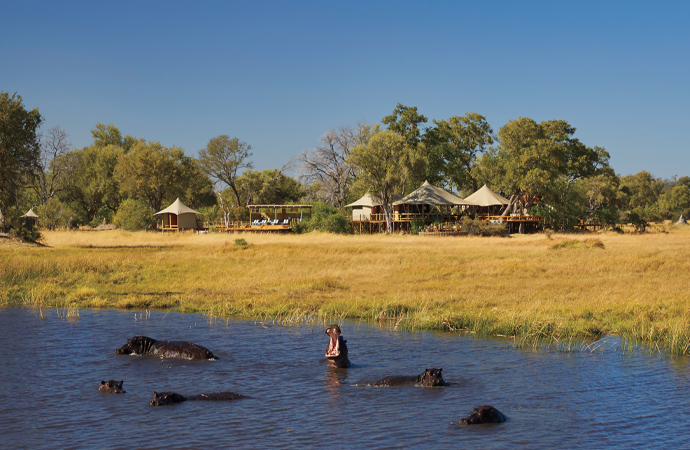
Camp and lagoon at Tuludi / Photo: Courtesy of Natural Selection
At more than 645 square feet, the suite-style tents at this camp in the Khwai Private Reserve are downright palatial, complete with wooden chandeliers, plunge pools and outdoor showers with claw-foot tubs. Even more impressive are the public spaces, a web of raised boardwalks connecting a series of showstopping amenities: a 13-foot-high tree-house library offering a giraffe’s-eye view of the camp’s wildlife-dotted “backyard” (which you exit via a slide); a lounge with a bar covered in a mosaic by South African artist Sarah Pryke; a firepit where you can stargaze and listen for animal calls in the dark; and a pool where curious elephants dip their trunks. Tuludi is particularly well-placed for spotting big cats like lions, cheetahs and especially leopards, such as camp favorite Nicky, who can often be found with her recent kill up in the trees just a few minutes’ drive away. The guides are absolute whizzes at tracking animals any time of day, and bird lovers should request the walking encyclopedia known as KG, who is able to identify every passing blur or faint call in the distance within seconds.
Tawana
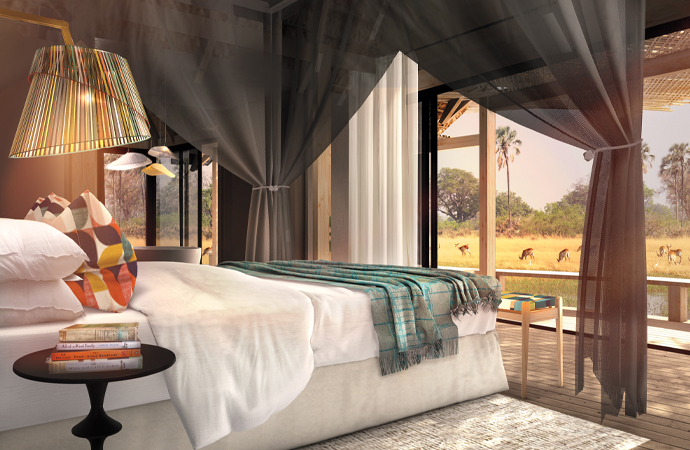
Rendering of guest suite at Tawana / Photo: Courtesy of Natural Selection
For its next camp, scheduled to open in May, Natural Selection is teaming up with Tawana Moremi, one of eight paramount chiefs in Botswana and a man whose family is forever linked to these lands. The launch date marks 60 years since his father and grandmother helped set aside their traditional hunting grounds for the Moremi Game Reserve, and their pioneering early conservation work is one of the main reasons why these lands are still bursting with wildlife. Botswana has more elephants than any other country in the world—so many, in fact, that by day two or three you might find yourself telling the driver, “We don’t have to stop for pictures—it’s just another elephant.” The new property will hug the banks of the Gomoti River, one of the region’s most consistent water sources. It’s a magnet for both land animals looking for a drink and throngs of water birds, including great white pelicans, malachite kingfishers and rare wattled cranes. Best of all, Chief Tawana has a hand in designing, building and managing the property—a first-of-its-kind arrangement in Southern Africa.

